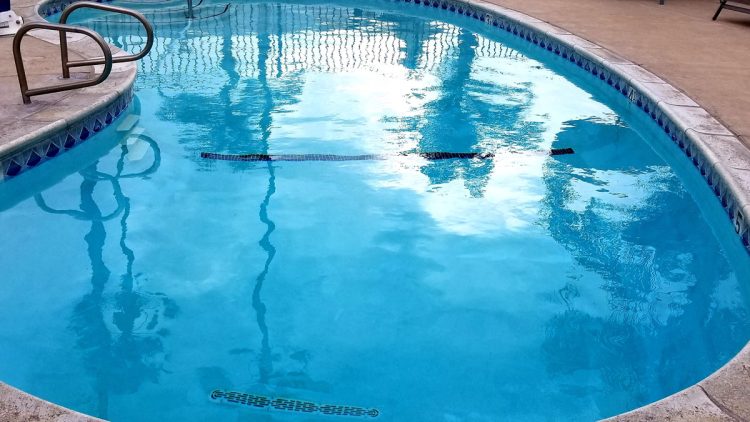Swimming Pool Light Replacement Costs 2025
Replacing a swimming pool light in 2025 typically costs between $500 and $1,700, depending on the type of light, its features, and installation complexity. Here’s a detailed breakdown to help you understand your options:
💡 Average Pool Light Replacement Costs (2025)
| Light Type | Total Replacement Cost | Bulb Only Cost | Average Lifespan | Energy Efficiency | Notes |
|---|---|---|---|---|---|
| Incandescent | $500 – $700 | $30 – $70 | 1,000 – 5,000 hrs | Low | Least expensive upfront but high energy use and short lifespan. |
| LED | $600 – $1,500 | $50 – $600 | 10,000 – 50,000 hrs | High | Energy-efficient, long-lasting, and often color-changing. |
| Fiber Optic | $1,300 – $1,700 | $40 – $80 | 3 – 7 years | Moderate | Offers subtle lighting; less popular due to LED advancements. |
🛠️ Additional Costs to Consider
-
Labor: Professional installation typically ranges from $50 to $300, depending on complexity and location.
-
Fixture Replacement: If the light fixture is damaged or outdated, full replacement costs can be higher.
-
Electrical Upgrades: Older pools may require electrical system upgrades to support modern lighting.
🔧 DIY vs. Professional Installation
While DIY replacement can save on labor costs, it’s generally not recommended due to safety concerns with electrical components near water. Professional installation ensures compliance with safety codes and proper waterproofing.
💡 Tips for Cost Savings
-
Opt for LED: Higher initial cost but offers long-term savings through energy efficiency and durability.
-
Regular Maintenance: Keep lights clean and check seals to extend lifespan.
-
Compare Quotes: Obtain multiple estimates from licensed pool professionals to ensure competitive pricing.
Are Swimming Pool Lights Safe?
Yes, swimming pool lights can be very safe if installed and maintained properly. However, because they are electrical devices used in a wet environment, there are important safety guidelines to follow to ensure they function without causing harm. Let’s break down the key points to keep in mind:
🔌 Electrical Safety
-
Ground Fault Circuit Interrupter (GFCI): Pool lights must be connected to a GFCI circuit, which shuts off power immediately if there is a ground fault. This is a critical safety measure to prevent electrocution.
-
Proper Wiring: All wiring should be installed by a licensed electrician and meet local safety codes to avoid electrical hazards.
-
Waterproof Fixtures: Pool light fixtures should be rated for underwater use (IP68 or similar) to prevent water from coming into contact with electrical components.
-
Correct Voltage: Most pool lights run on low voltage (12V or 24V), which is safer for poolside environments than standard household current (120V or 240V).
🏊 Waterproofing and Sealing
-
Pool lights should have watertight seals around the fixture to prevent water from entering. Even small leaks can damage electrical components or create short circuits.
-
Rugged Design: Lights designed for underwater use should be durable, with a sealed lens to protect against water, dirt, and algae build-up.
⚠️ Installation Considerations
-
Location of Lights: Pool lights must be positioned at least 5 feet from the edge of the pool, in accordance with safety codes. Installing lights too close can create hazards for swimmers and can damage electrical equipment.
-
Certified Professionals: It’s crucial to have lights installed by a professional who is familiar with both pool systems and electrical safety. Improper installation can lead to electrical shocks or fires.
💡 LED and Fiber Optic Lights
-
LED lights are often the safest option, as they run cooler and use less energy than traditional incandescent lights.
-
Fiber optic lights are another safe option, as they use light guides (rather than electricity) to create illumination in the pool.
🛠️ Regular Maintenance
-
Inspecting Fixtures: Periodically check the light fixtures for any cracks or damage. If you notice any issues with seals, wiring, or connections, replace the parts immediately.
-
Water Quality: Poor water quality can affect light fixtures, so regular pool maintenance is key. For example, high chlorine levels can corrode the lights’ components if not regularly maintained.
🏊♂️ Safety Tips for Pool Users
-
Avoid touching lights while swimming: Always ensure lights are turned off before entering the pool.
-
Avoid swimming near lights: For added safety, avoid swimming directly near the pool light fixture, particularly if the light has been recently turned on or off.
In Summary
Swimming pool lights are safe, but their safety depends heavily on proper installation, regular maintenance, and adherence to electrical codes. As long as these guidelines are followed, pool lights can enhance the beauty of your pool without posing risks.
Pool Light Replacement In Gilbert, AZ
Pool Service Gilbert is a family-owned and operated business that has been serving the valley since 2004. We offer reliable and affordable pool services, including repairs, replacement, equipment installations and more! Our service area includes Ahwatukee, Chandler, Gilbert, Mesa, Phoenix and Tempe, Arizona. Contact us right here for your upcoming pool service needs! Call us at 480-748-3022 for more information.

